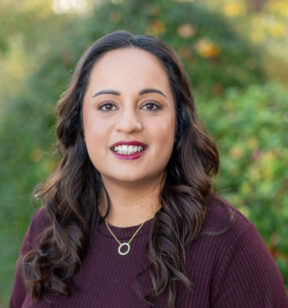What we can learn about bigamy and intestacy from the Dinsdale case
The recent Dinsdale High Court case involved both bigamy and intestacy. Here we look at the lessons and insights we can all learn from this case.
The Background
Accountant James Dinsdale died after a battle with cancer in 2020, leaving an estate worth around £1.8m. He had not made a will and died intestate.
Dinsdale’s first wife was Dr Fowell, a cosmetic dentist. They married in Las Vegas in 2012 but later separated.
In 2014, he began a relationship with a second partner, Margaret. They married in 2017, with Margaret unaware that James was still married to Dr Fowler. She had assumed that James and Dr Fowell had legally ended their marriage some time before, leaving him free to remarry.
Bigamy & Intestacy
Under English and Welsh law, bigamy is a criminal offence. This means that James Dinsdale’s second marriage to Margaret was null and void. Consequently, Margaret had no right to inherit his estate under the intestacy rules and by law, the estate would go to his legal wife, Dr Fowler.
Margaret had cared for Dinsdale throughout his cancer battle and had no idea that he was still married to Dr Fowler. She had been financially dependent on him having given up her own job during the marriage.
The Inheritance (Provision for Family and Dependants) Act 1975
The circumstances led to an inheritance dispute, with Margaret, who had worked as a beautician, claiming that she should be treated as James Dinsdale’s spouse and be able to make a claim on his estate.
Her barrister argued that Margaret had no knowledge that Dinsdale was still married to Dr Fowler, that Dr Fowler had no financial needs given that James Dinsdale had given her a property and £2m lump sum when the marriage ended and that Margaret had been financially dependent on the man she assumed was her legal husband.
Given the circumstances, the judge ruled that Margaret should be treated as a spouse for the purposes of claiming under the 1975 Act, even though the marriage was void. A future hearing will decide how the estate is divided between the two wives and the adult son that Dinsdale shares with Dr Fowler.
Lessons we can learn from the Dinsdale case
- If a person is not formally and legally divorced but still remarries, they have committed bigamy, a criminal offence.
- Cohabitees have no automatic rights to inherit their partner’s estate if they die intestate.
- When a marriage is void, it is still possible to make a claim for inheritance rights under the 1975 Act.
- Under the 1975 Act if someone is financially dependent on another, even if they aren’t legally married, they may be able to make a claim on the estate.
- It is essential that a Will is written and kept up to date with your wishes in the event of death, as a new marriage can revoke a previous Will.
If you are struggling with issues arising from separation and divorce, we offer a no obligation initial consultation for a fixed fee of £100 (incl. VAT), for up to one hour. At this meeting, we can advise you on all the issues relating to your personal circumstances, allowing you to make informed decisions moving forward.
To book an appointment please call 01444 472700, email us at info@tisshawssolicitors.co.uk or complete the form below.

Book a consultation to discuss your options –
Only £150 (Incl. VAT)
We know how difficult divorce and separation can be, so we offer an initial one hour fixed fee consultation with a fully qualified lawyer, to help you make an informed decision about how to proceed.
To book, please call 01444 472700 or complete the quick contact form.
